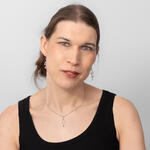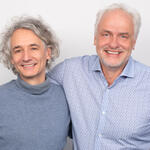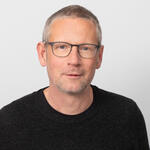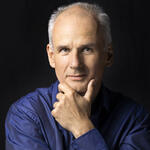Influential in their field
When a seminal study is published in a scientific journal, researchers worldwide reference it, citing the work and, in turn, providing a measure of the authors' scientific impact. This is the basis for the "Highly Cited Researchers" list. The ranking includes studies from the past decade that have been cited the most within their respective fields and publication years, representing the top percentile. Clarivate Analytics, a US-based company specializing in bibliometrics and data science, doesn't rely solely on numbers; they combine quantitative and qualitative analyses to compile a "Who's Who" in research.
Approximately one in a thousand researchers makes it onto this prestigious list, and this year 6,849 researchers from 67 countries have achieved this recognition. The majority of them work in the United States of America (2,669), followed by scientists from China (1,275), the United Kingdom (574), and Germany (336) – like Professors Sofia Forslund, Friedemann Paul and Nikolaus Rajewsky.
About our researchers
Sofia Forslund heads a research group at the Experimental and Clinical Research Center (ECRC), a joint institution of Charité – Universitätsmedizin Berlin and the Max Delbrück Center. The data-driven models developed by the Swedish biochemist and bioinformatician illustrate how we and our gut microbiome develop together toward health or disease.
Friedemann Paul is Director of the ECRC. As a neuroimmunologist, he and his team focus on enhancing therapeutics and diagnostics for diseases such as Multiple Sclerosis. Additionally, they participate in an international consortium researching inflammatory processes preceding organ malfunction or damage.
- Understanding the transition to disease
- Low levels of a simple sugar – a new biomarker for severe MS?
Nikolaus Rajewsky, Director of the Berlin Institute for Medical Systems Biology at the Max Delbrück Center (MDC-BIMSB), aims to identify diseases using high-throughput single-cell analysis methods, intervening before cellular dysfunctions cause harm. To pave the way for cell-based medicine in Berlin and Europe, he actively works to establish networks at all levels.
Further information
Contact
Jana Schlütter
Editor, Communications Departmen
Max Delbrück Center
+49 30 9406 2121
jana.schluetter@mdc-berlin.de or presse@mdc-berlin.de
- Max Delbrück Center
-
The Max Delbrück Center for Molecular Medicine in the Helmholtz Association (Max Delbrück Center) is one of the world’s leading biomedical research institutions. Max Delbrück, a Berlin native, was a Nobel laureate and one of the founders of molecular biology. At the locations in Berlin-Buch and Mitte, researchers from some 70 countries study human biology – investigating the foundations of life from its most elementary building blocks to systems-wide mechanisms. By understanding what regulates or disrupts the dynamic equilibrium of a cell, an organ, or the entire body, we can prevent diseases, diagnose them earlier, and stop their progression with tailored therapies. Patients should be able to benefit as soon as possible from basic research discoveries. This is why the Max Delbrück Center supports spin-off creation and participates in collaborative networks. It works in close partnership with Charité – Universitätsmedizin Berlin in the jointly-run Experimental and Clinical Research Center (ECRC), the Berlin Institute of Health (BIH) at Charité, and the German Center for Cardiovascular Research (DZHK). Founded in 1992, the Max Delbrück Center today employs 1,800 people and is 90 percent funded by the German federal government and 10 percent by the State of Berlin.









